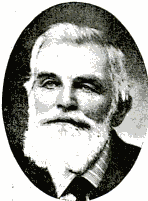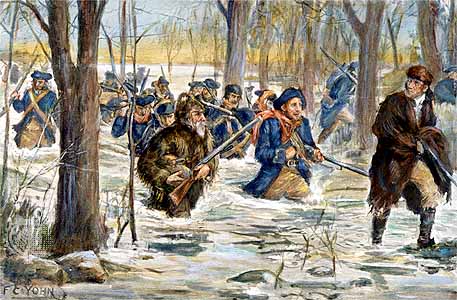 JOHN MONROE ANDERSON
JOHN MONROE ANDERSON
BIOGRAPHY and GENEALOGY
(1834 – 1904)
Calhoun and Montgomery County, Alabama
John Monroe Anderson, a planter, was born March 3, 1834, in Monroe County, Tennessee, the son of John, Sr., and March (Coker) Anderson, the former a native of Virginia, the latter a native of Tennessee, His parents moved at an early date to Benton (now Calhoun) County, where his father engaged in extensive planting with slave labor. John Monroe Anderson was the grandson of William Anderson, a Revolutionary soldier.
He attended the county schools near Cross Plains in Calhoun County. “He was appointed deputy sheriff in the county as soon as he arrived at age; and so administered his trust as to win the confidence of the people, with whom he became quite popular. His natural tastes, however, inclined him to farming and his integrity, business habits and skill as a farmer, caused him to be sought after to manage plantations. He was employed by Col. James B. Martin to superintend his estates, which were quite extensive for that county.”(THE JACKSONVILLE REPUBLICAN 1886 )
In 1861, he enlisted in Co. E, 1st Alabama cavalry regiment, C. S. Army, and was Gen. Wheeler’s escort.
The following is from a sketch about him in THE JACKSONVILLE REPUBLICAN in 1886.
“When the war broke out he was engaged in these congenial pursuits; but hastily quit the plow to take up the sabre in defense of his country, and was the first man to enlist in 1861 in the Powell Dragoons, a Cavalry company, composed mainly of men from Calhoun and Cherokee counties. The company was ordered to Montgomery where with other companies it formed the famous First Regiment of Alabama Cavalry, under Col. James H. Clanton. The subject of this sketch was elected Junior Second Lieutantant.(sic)
In the first engagement at Shiloh he behaved with great gallantry and was twice wounded. He rejoined his command in time to take part in the severe engagement at Guntown. The command accompanied Bragg on his march to Kentucky and participated in the engagements at Mumfordsville, Perryville and Green River and for weeks covered the retreat from Kentucky, being under fire day and night. The good qualities of the officers and men had not escaped Gen. Wheeler, who had the company detached as his escort. He was always at the front, and so was his escort; and it was very hard service under him, being constantly under fire.
After the battle of Chickamauga, the subject of this sketch was promoted to the captaincy of his company. He was constantly with Wheeler in all his operations until the end of the war, and was under fire probably as often as any member of the Army of the Tennessee. Though so much exposed, he escaped without further wounds than in his first fight and was never afterward absent, except for a few days, either on account of sickness or on leave. He was a thorough-going soldier, and his men were greatly attached to him.”
He was made captain of Co. E, on the promotion of Captain Reese to regimental command; served through the Atlanta, South Carolina, into North Carolina campaigns, where the command was surrendered.
Mr. Anderson returned to Calhoun County, resumed farming, and in 1865, was elected sheriff, but resigned the office rather than levy on the property of the ruined people of his county, many of them his comrades-in-arms, or their widows.
In 1867, he removed to Montgomery, where he located permanently. He was elected to the house of representatives in 1886. He was a Whig, but after 1865, a Democrat; a Mason, member of Montgomery lodge No. 11. He married in 1869, Clementine J. Wells, daughter of Rev. Alexander A. and Ellen (Anderson) Wells, of Calhoun County, the former a minister of M. E. church. She lived ten years and after her death, Captain Anderson remained unmarried.
“His sterling qualities, rugged, honesty and hard “horse-sense”, made the people of the county desirous of his services as a legislator and at the Democratic primary in 1886 he received a handsome vote for a seat in the House and was nominated by acclamation in the convention and elected at the August election” ( THE JACKSONVILLE REPUBLICAN)
John Monroe Anderson died July 10, 1904, in Montgomery, Alabama and is buried at Oakwood Cemetery in Montgomery, Alabama.
SOURCES
- History of Alabama and Dictionary of Alabama Biography, Volume 3 By Thomas McAdory Owen, Marie Bankhead Owen
- Findagrave.com # 8450705
- Alabama State News – CALHOUN County Local News 1886 – NEWSPAPER ABSTRACTS FROM “THE JACKSONVILLE REPUBLICAN”
- Notable Men of Alabama: Personal and Genealogical, Volume 2 edited by Joel Campbell DuBose
Start researching your family genealogy research in minutes. This inexpensive Ebook has simple instructions on how to get started with FREE sources. Download WHERE DO I START? Hints and Tips for Beginning Genealogists with On-line resources to your computer immediately with the FREE APP below and begin your research today!
Reviews
“This book was very informative and at a very modest price. Thank you for your great newsletter and this book.”
“The book was clear & concise, with excellent information for beginners. As an experienced genealogist, I enjoyed the chapter with lists of interview questions. I’d recommend this book to those who are just beginning to work on their genealogies. For more experienced genealogists, it provides a nice refresher.”





Kay Bryant Anderson